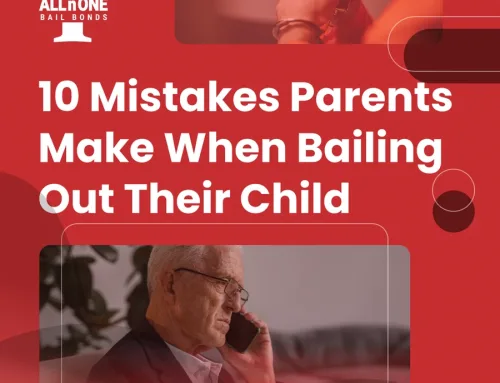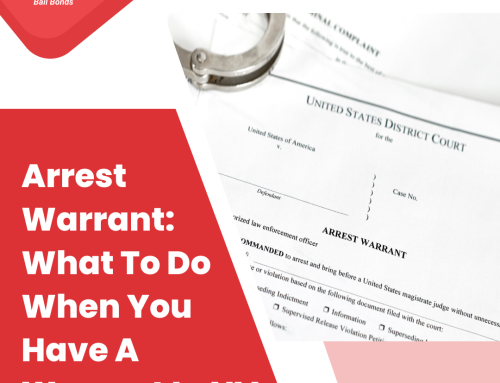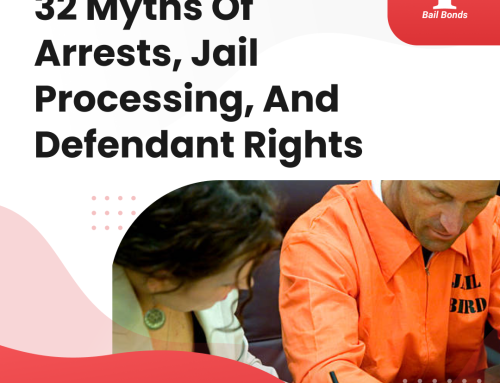Here are 5 surety bail bond secrets that you should know if you need a bail bond. Knowing these will make your experience with bail bonds a whole lot better!
If you already know the ins and outs of bail bonds and are here because you are ready to work with an experienced bail bond agency, call us anytime. We are available 24/7.
MORE: To learn about bail amounts by crime in Las Vegas, see our article Bail Amounts By Crime In Las Vegas
1. There Are Flexible Payment Plans Available
Surety Bail bond premiums can be expensive, but flexible payment plans offer the perfect solution.
If you are unfamiliar with what bail bond premiums are or how they work in Nevada, they are what you pay a bail bond company to help you post bond.
The state of Nevada has set the amount that you pay for a bail bond premium at 15 percent of your total bail amount, meaning if your bail amount is $10,000, you will pay $1,500 for your premium.
Flexible payment plans work great if your bail bond premium is too much to pay all at once. The length of time of your plan and how much you pay per month can all be worked out with the right bail bond company.
Flexible payment plans are something we specialize in.
2. You Can Request A Lower Bail Amount
Believe it or not, it is possible in some cases to get your surety bail amount reduced.
To do so, you will need to make a request (file a motion with the court) during your bail hearing. We would recommend allowing your attorney to file the motion for you, as they will be best suited to convince the court to reduce your bail amount.
Whether the amount gets reduced depends on several factors, including, but not limited to, the nature of the crime, your criminal history, how much of a flight risk you pose, and whether you pose a risk to the community at large.
3. You Can Ask To Get Released On Your Own Recognizance (But there is an issue)
Aside from lowering your bail amount or paying your surety bail bond premium with a flexible plan, you might also be able to get released on your Own Recognizance. The only downside is that you’ll likely get stuck with an ankle monitor!
Getting released on OR means you do not have to pay bail since the court is trusting you to honor the conditions of your release. To get released on OR, you typically need to only be facing minor charges, have a clean record, and have no history of skipping bail.
4. A Bail Bond Company Will Provide Assistance To You If You Violate The Conditions Of Your Bail
Let’s say you’re on your way to your court hearing, you only have 10 minutes to get there, and suddenly your tire goes out. Encountering a situation like this can cause you to miss your court hearing and violate the conditions of your bail.
Fortunately, if something like this happens to you, your bail bond company can help.
Your bail bond company will communicate with the court and explain your situation. They’ll also counsel you on the next steps, such as contacting your attorney, so they can convince the court to clear your bench warrant.
5. You Are Better Off Avoiding 5 Percent Surety Bail Bond Premiums
If you ever see a Nevada bail bond agency putting out an advertisement claiming to offer 5 percent bail bonds, we recommend exercising caution. In Nevada, the cost for bail bond premiums is set by the state at 15 percent of the total bail amount, so 5 percent bail bonds do not really exist here.
For many people, $1,500 is a lot of money, hence why some bail bond agencies run advertisements talking about super cheap bail bonds. Trying to get you to commit is the only reason a bail bond agency in Nevada would use an underhanded advertising strategy like this.
Additional Surety Bail Bond Secret
You Should Not Hire A Bail Bond Agent Who Tries Soliciting Business In Jail
While laws vary per state, in Nevada (as in most states), bail bondsmen are not allowed to solicit business from you while you are in jail or in court.
Despite what the law says, it is possible that you may still run into a bail bondsman who tries taking advantage of your situation, perhaps by passing out a flyer, offering you a good deal, or simply intimidating you into committing to getting a bail bond.
With this in mind, we recommend only working with a bail bond agency that is transparent, has integrity, and will not try to take advantage of your situation in any way, shape, or form.
Further Reading: Bail Bond FAQs
Q: How to Get Out of Jail Fast?
Getting a bail bond is the best way. This lets you get out of jail fast without paying your full bail amount.
Q: What Are The Two Main Types of Surety Bail Bonds?
The two main types of bonds are (1) surety bonds and (2) cash bonds.
While these two bond types share a few similarities, it’s the differences that are important to understand.
Q: How Does A Surety Bail Bond Work?
Surety bail bonds are not as straightforward as cash bonds since surety bail bonds involve three parties at a minimum.
These three parties are:
- (1) The Principal. This is the party that is required to get the bond to ensure that a specific obligation to the obligee will be performed.
- (2) The Obligee. This is the party requiring the bond. If the Principal fails to fulfill their commitment, the surety will compensate the obligee.
- (3) The Surety. This is the party that ensures the bond. When a valid claim is made, the surety either requires the Principal to pay the claim amount or will pay it directly. If the surety pays the claim directly, then they will seek reimbursement from the Principal.
Q: How Does A Cash Bond Work?
Cash bonds are paid to the court in cash, debit card, or credit card to get a defendant out of jail. After you’ve paid your bail amount, the court will keep your cash until your trial concludes.
If you abide by all the conditions of your release, the full cash bail amount, less any fees, will be returned to you once everything is said and done. But if you don’t abide by the conditions of your release, the court will keep your bail money.
Obviously then, when you pay a cash bond for another individual, you risk forfeiting the bond if that person does not show up for court.
Q: What Is A Surety Company?
Simply put, a surety bond company is one that provides surety for someone else. Usually, insurance companies will have a surety division that specializes in the issuance of surety bonds.
Q: What Are The Drawbacks To A Surety Bail Bond?
When a bail bond company posts a surety bail bond, they run the risk of losing their money. Hence, if you obtain a surety bail bond for a loved one in Nevada, you are required to pay a 15 percent, non-refundable bail bond premium.
The biggest drawback here is that you don’t get that money back. On the other hand, if you pay cash bail, you will get all of your money back as long as you abide by the court’s requirements.
Q: Cash Bond Or Surety Bond?
Either a cash bond or a surety bail bond will secure your loved one’s release. But it is vital to keep these differences in mind:
- With a cash bond, you assume the risk of forfeiting the entire bail amount.
- With a surety bond, again, you will NOT get your premium back.
- With a surety bond, you get the help of a bail bond agency that can guide you through the entire bail bond process.
Q: Is All n One Bail Bonds Licensed?
Yes.
The Nevada Department of Insurance governs the bail bond industry in the state and requires respectable bond agencies to follow certain licensing procedures. Upon getting licensed, bond agencies can advance bail money to defendants to get them out of jail quickly.
Q: What Are Immigration Bonds?
An immigration bail bond serves the same purpose as a regular bail bond, except that the former is used by immigrants living in the United States when they break immigration laws or run into issues with ICE.
Q: How Do Immigration Bail Bonds Work?
How an immigration bond works depends on what type of immigration bond a person needs. There are two types:
- Delivery Bond: This bond allows someone to get out of custody so that they can get their legal, business, and personal affairs in order. Delivery bonds are required when an immigrant has had a warrant issued for their arrest because they have broken immigration law.
- Voluntary Departure Bond: This bond is used when an immigrant is given the option to voluntarily leave the United States and return to their home country. Voluntary departure bonds ensure that the immigrant will, in fact, leave in the time specified by the court.
Q: Who Qualifies For An Immigration Bond?
Any person who has been detained by ICE for any immigration-related reason can get an immigration bond or ICE Form I-352. But there are some exceptions to this rule. If the detained person, for instance, poses a flight risk or presents a danger to other people, there is a strong chance that they will be denied bail.
If you or someone you know is facing a legal issue with ICE and there is a good chance that you will not be able to get an immigration bond, we recommend talking to your attorney. They will be in the best position to help you get one.
Q: How Do You Post An Immigration Bond?
In order to post an immigration bond, the detainee needs the assistance of an obligor, i.e., someone who lives lawfully within the United States. This could be someone the detainee knows personally or a licensed bail bond agent.
The obligor must be 18 years old or older and supply certain documents and forms of identification to their nearest ICE ERO Field Office. The specific items the obligor will need to submit include a U.S. birth certificate, an Employment Authorization Document, and a driver’s license, but they may not be limited to these.
The obligor will also need to pay the full bail amount in person at the ICE office via certified check or money order from the U.S. Post Office.
Please keep in mind that different ICE ERO Field Offices may require the obligor to pay in different ways, although none of the offices accept cash or personal checks.
Before traveling to the office, we recommend contacting them to ask about what payment method they accept. We also recommend that you contact them the day before you arrive to let them know you are coming. During the phone call, they will ask you to provide information about the detainee, such as their name, how much the bond is, and the detainee’s ID number.
Once the bond has been posted, the obligor will receive the immigration bond or ICE Form I-352, after which the detainee will be released from jail, but the release process may take a few hours.
Q: Are Immigration Bonds Refundable?
Yes, they are. But in order for a detainee to get their refund, they must abide by all of the court’s requirements.
If they successfully meet all of the court’s requirements, the obligor will receive an ICE Form I-305, which the immigrant will need to get their refund.
Contact Us
If you are looking for a friendly and highly experienced bail bond agency, you have come to the right place. We have been helping people in Las Vegas, North Las Vegas, Henderson, Mesquite, Boulder City, Searchlight, Laughlin, and Pahrump for years, and we are ready to help you too.





